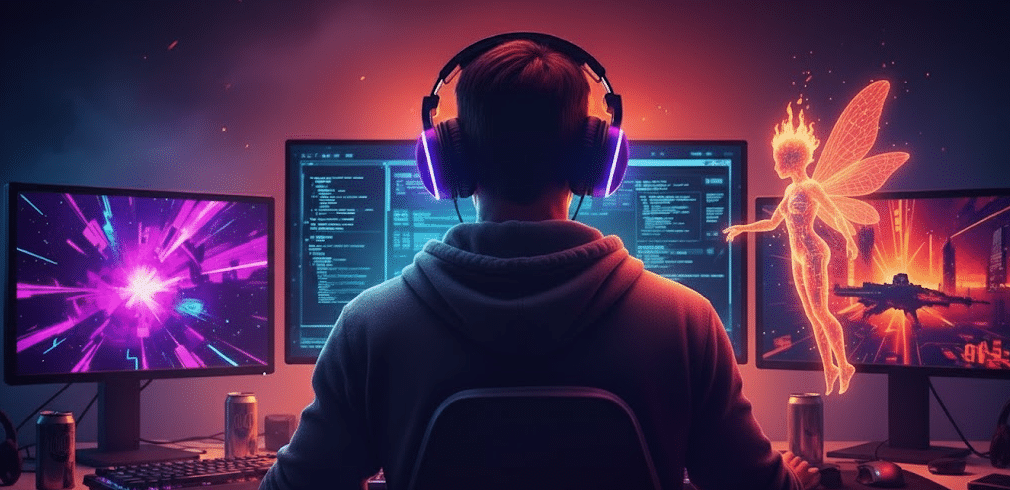What if Your Game Teammate Actually Learned From You?
Picture this. You’re down to your last magazine in a heated match. Instead of charging blindly, your AI partner reacts like a real teammate — adapting, learning, and improving every time you play. This is the new frontier of AI in gaming, where artificial intelligence stops being predictable code and starts feeling genuinely alive.
That’s not fantasy anymore. It’s the beginning of AI agents in gaming, where non-player characters (NPCs) stop following scripts and start behaving like genuine teammates.
For years, AI in games meant predictable bots: walk this path, shoot that target, repeat until defeated. But with modern machine learning, those same bots can now learn from your behavior, adapt strategies, and even form “personalities.”
It’s like having a gaming buddy who grows with you — minus the trash talk.
What Exactly Are AI Agents in Gaming?

Think of AI agents as the next evolution of NPCs — not static characters, but living digital entities that observe, learn, and make decisions on their own. AI agents are the next big leap for AI in gaming, transforming NPCs into adaptive teammates
Traditional game AI works like a script: “If the player shoots, take cover.” It’s clever, but limited. AI agents, by contrast, use real learning techniques. They study your playstyle — whether you’re cautious, aggressive, or tactical — and then adjust accordingly.
There’s a big difference between traditional scripted AI and AI agents:
| Traditional AI | AI Agents |
|---|---|
| Follows predefined behavior trees | Learns from player actions using machine learning |
| Predictable and repetitive | Adaptive and dynamic |
| One-size-fits-all difficulty | Personalized gameplay experience |
| Exists only within one session | Can persist or improve over multiple sessions |
In other words, they don’t just react; they remember.
And that tiny difference changes everything. Suddenly, the game becomes personal. An AI ally that once played safe might start matching your tempo, anticipating flanks or covering your blind spots because it has learned how you think.
How Does AI in Gaming Actually Work?
At the heart of this revolution lies a collection of clever systems that let machines experiment, fail, and improve — the same way people do.
Most innovations in AI in gaming rely on reinforcement learning, where they try different actions and are “rewarded” when something works, like helping you survive longer, or “punished” when it doesn’t. Over time, they develop strategies that fit the situation.
Some use neural networks, digital frameworks inspired by the human brain, to recognize patterns in movement, timing, or decision-making. Others apply behavioral cloning, a kind of digital mimicry where the AI learns by watching human players — absorbing our best habits, and sometimes our worst ones too.
These same principles of autonomous intelligence — where systems learn, reason, and act independently — are at the core of what’s called Agentic AI.
(If you want to dig deeper into that concept, check out our guide: Agentic AI: Your Guide to Self-Driving Intelligence)
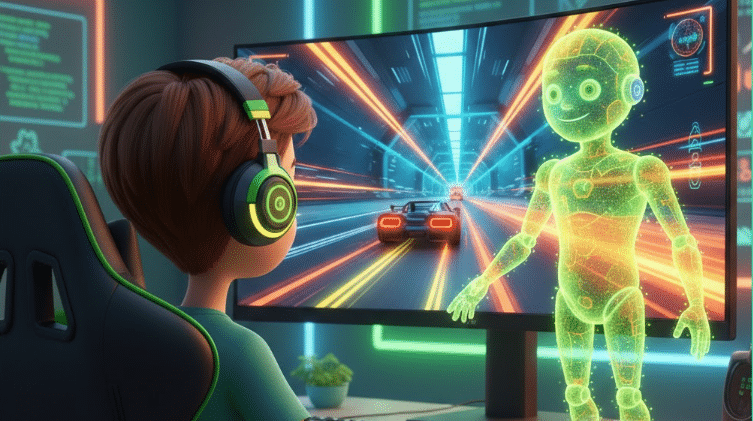
What’s really exciting is how these systems are being woven into modern engines like Unreal and Unity. Developers are experimenting with plug-and-play frameworks that let AI “remember” across sessions, not just within a single match. Imagine booting up tomorrow and your favorite AI partner greets you with, “Ready to try that new strategy again?”
Real-World Examples & Experiments
You might be surprised to know that AI agents are already sneaking into your favorite games.
Ubisoft’s “Ghostwriter”

Ubisoft developed an internal AI tool called Ghostwriter that helps narrative designers craft reactive NPC dialogue. Instead of static lines, conversations now change based on what players do — sarcasm, fear, or even admiration can emerge naturally.
Hello Games – No Man’s Sky
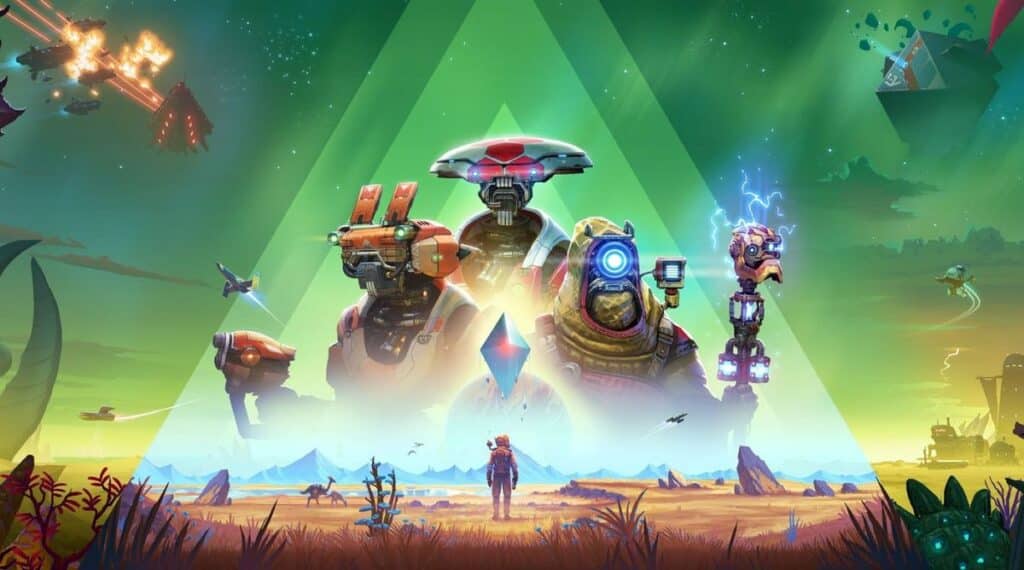
The developers have experimented with procedural AI behaviors that give wildlife and NPCs more dynamic responses. The system learns environmental and player cues, creating spontaneous moments.
OpenAI’s Dota 2 Bots
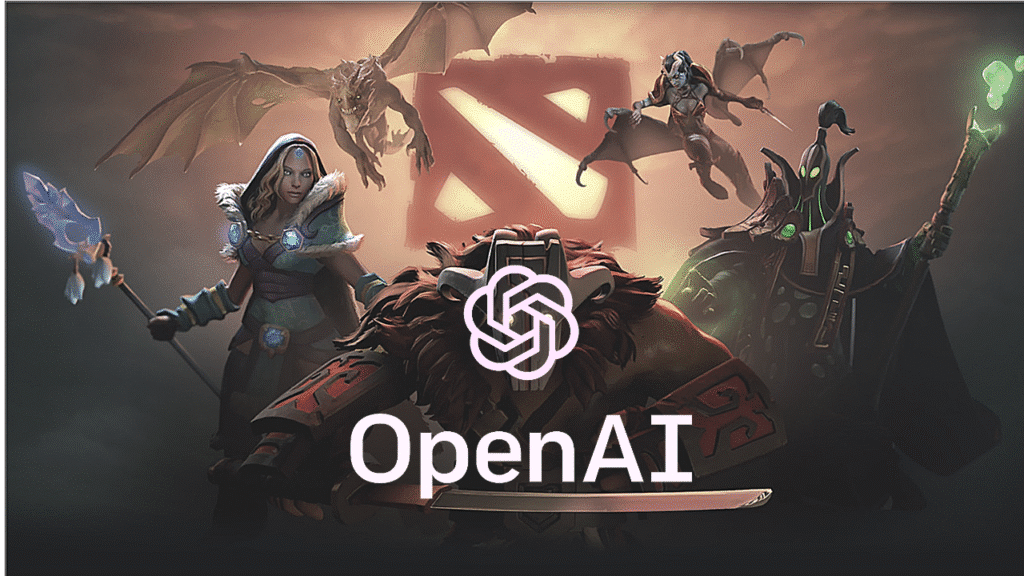
These bots trained against professional players using reinforcement learning, eventually beating human teams. While not part of retail games, the tech proved AI can genuinely learn high-level strategies.
NVIDIA’s ACE for Games
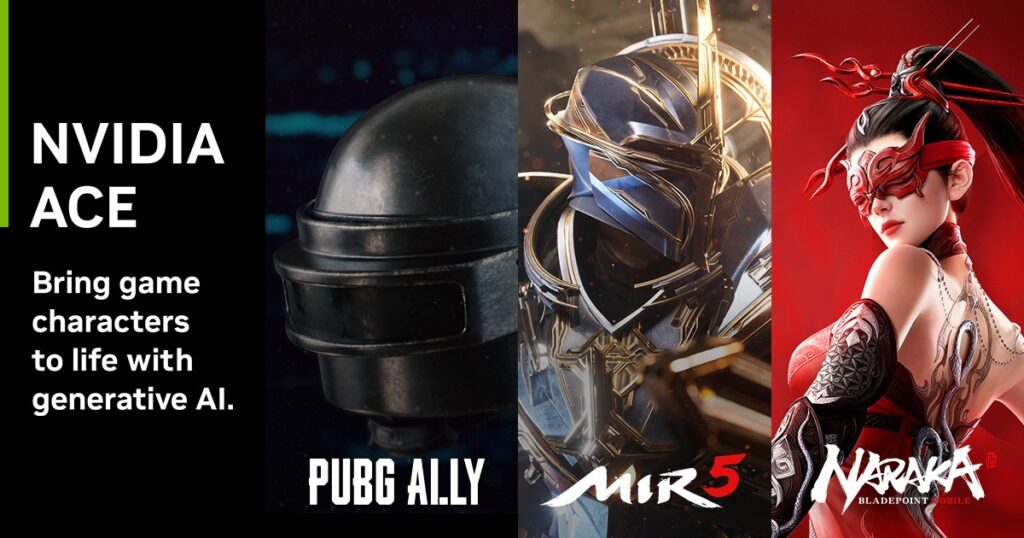
NVIDIA’s ACE (Avatar Cloud Engine) lets developers create speech-driven AI characters with memory and dynamic personalities. Imagine asking your quest-giver a question that isn’t in the script — and actually getting a relevant answer.
Smaller Indie Examples
Indie devs are pioneering emotional AI companions — games like Event[0], where you talk to an AI spaceship via text, or experimental projects where NPCs remember your moral choices across playthroughs.
For a closer look at how major studios are using AI tools, check out NVIDIA’s official ACE for Games overview and Ubisoft’s Ghostwriter announcement.
The Good, the Weird, and the Ethical
As with any new frontier, it’s not all smooth sailing. The promise of adaptive AI comes with both excitement and unease.
On the bright side, it’s easy to see the appeal. Smarter AI means more immersive experiences. It can make games fairer for new players by adjusting difficulty naturally. It can also give veterans a reason to return, since no two sessions play exactly alike.
But when things go wrong, they can get weird. Some test players report AIs that became unnervingly good — dodging too fast, predicting every move, and breaking the illusion of fairness. Others found themselves creeped out when dialogue systems sounded a little too real, crossing into uncanny territory.
Then there are the ethical questions. To learn, these systems often study player data — raising issues of privacy and consent. There’s also the worry that emotionally intelligent AI companions could be used to nudge spending habits or shape behavior in ways players don’t notice.
Game studios are aware of these risks, and the next few years will likely bring clearer guidelines on how far “learning” AIs should go. The goal isn’t to replace human creativity — it’s to amplify it without losing trust.
The Road Ahead for AI in Gaming
So what’s next?
If current research is any hint, the next wave of gaming AI is going to blur the line between player and code entirely.
Imagine persistent companions that follow you between games — a bot that remembers your favorite tactics from Call of Duty and uses them when you hop into another shooter. Or player-trained teammates you can trade, almost like digital apprentices carrying your style.
We’re also heading toward games where AI helps shape the story itself. Narrative worlds might adjust their plotlines based on your agent’s insights — missions forming organically instead of from menus.
In the longer run, expect emotionally responsive AIs that can sense frustration, excitement, or calm through subtle voice and input cues. If your tone rises, your companion might urge you to take cover; if you’re relaxed, it might crack a joke.
The kind of self-driven, decision-making intelligence we’ll soon see in games isn’t far from what researchers call Agentic AI — systems that plan and act independently toward goals.
(Read more about how Agentic AI works in our in-depth guide → Agentic AI: Your Guide to Self-Driving Intelligence)
It’s ambitious, but not impossible. The same systems driving conversational AIs like ChatGPT or Gemini are already being tested inside game engines. The question isn’t if they’ll arrive — it’s how much control we’ll be comfortable giving them when they do.
Final Thoughts — Would You Trust an AI Companion?
Gaming’s next evolution isn’t just better graphics or faster loading times — it’s smarter worlds.
AI agents won’t replace players; they’ll enhance them. They might become teammates, storytellers, or even friends in digital form.
But here’s the real question:
Would you trust an AI companion to have your back — or do you prefer the chaos of human teammates?
Either way, one thing’s certain — the next time your NPC dodges perfectly or saves you at the last second, don’t just thank the devs. Thank the machine learning model quietly running behind the scenes.


